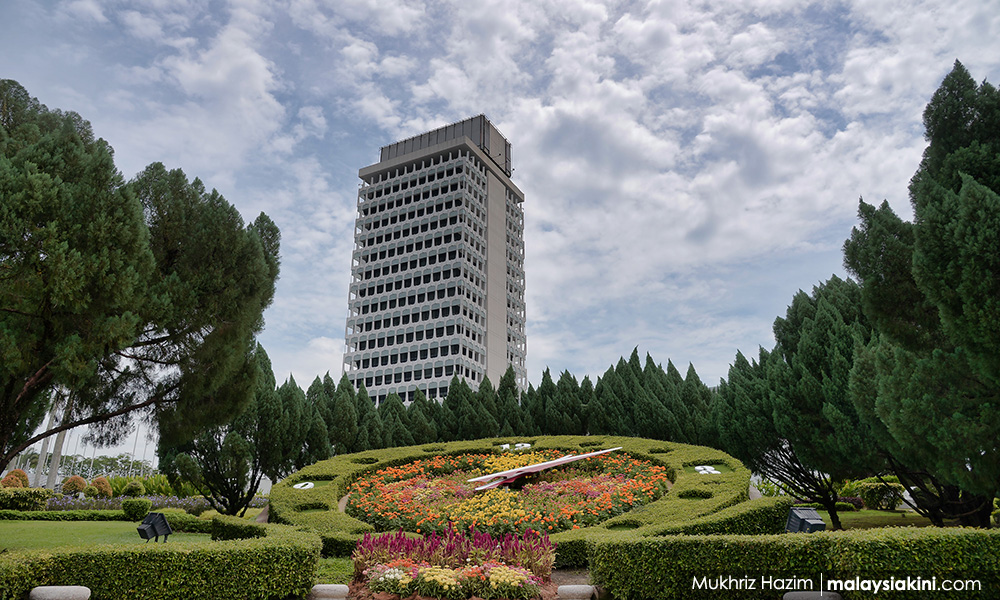The promulgation of the Emergency (Essential Powers) Ordinance 2021 has raised grave concerns among lawyers who feel it has granted the government sweeping powers in its bid to stem the Covid-19 pandemic.
Among the issues they cited today are the suspension of elections and Parliament and State Legislative Assembly sittings, the power to acquire private property and the government's seeming immunity from legal action during the emergency.
In a posting on his Twitter account, lawyer New Sin Yew described the Ordinance as "draconian".
“This ordinance is the most draconian piece of legislation ever made by this government.
“It takes away election, it suspends Parliament and State Legislatures, it gives government wide powers to acquire private properties.
“This is no democracy,” New said in the posting uploaded today.
The Ordinance, which was published today, covers a range of governance issues, including the suspension of parliamentary and state elections, the power of the executive to make regulations, the establishment of an independent special committee, the provision for the temporary seizure of assets and resources, additional powers to the armed forces and special powers to directions for treatment, immunisation, isolation, observation or surveillance (in relation to Covid-19).
Among the questions posed by the document, which was promulgated by the Yang di-Pertuan Agong Sultan Abdullah Sultan Ahmad Shah on Jan 14, is that it does not appear to have a date of termination and does not state a timeframe for when the powers will cease to apply.
Notably, those who violate the provisions for temporary seizure of assets and resources will be liable to a fine of RM5 million, or 10 years' jail, or both.

When contacted by Malaysiakini, New said what is particularly worrying is Item 12, which states that the five-year term limit for Parliament may not apply in the event that emergency lasts up to 2024.
“So, assuming the emergency continues until 2024, then Parliament will not be dissolved in 2023,” he said.
The first session of this Dewan Rakyat was first held in 2018, following the 14th general election.
In a Twitter post, lawyer Syahredzan Johan questioned whether the Ordinance would deprive laypersons of legal recourse against the government for an action done in the name of implementing the Ordinance.
He cited item 10 of the Ordinance, which states that no prosecution and any other legal action can be brought against the government, public officer or those appointed under the Ordinance, for any action, neglect and contravention done in executing the Ordinance.
“Your rights are denied by the Ordinance?” Syahredzan asked in the posting.
Speaking to Malaysiakini, lawyer Sangeet Kaur Deo expressed fears that the Ordinance has denied the people a secondary check-and-balance via the courts against actions of the government linked to the Ordinance.
“I am very concerned about this. We have already lost our check-and-balance in Parliament, and now we are unable to access the court as secondary check-and-balance (against government oversight linked to the emergency).
“This leaves the new Ordinance open to abuse, which is certainly my fear,” she said.
Sangeet noted that at the end of the day, the people would be denied checks against abuses of the Ordinance, which would set a very dangerous precedent.
She added that this lack of legal recourse for the people comes into play with the other provision of the Ordinance which empowers the government to acquire private property during the emergency period.
“It gives the government free reign over private property, which will also set a dangerous precedent as there is no full recourse to the law,” Sangeet said.
Proper avenue
Lawyer Syed Iskandar Syed Jaafar al-Mahdzar said that although the government's actions under its emergency powers cannot be challenged in the court, there is still a need for the matter be brought to court.
He said this is because of the issue of the legitimacy of the Ordinance as there are already sufficient laws that can help the government tackle the spread of the pandemic.
Syed Iskandar claimed the Ordinance itself did not contain many provisions in relation to Covid-19.
“The court plays an important role in being the proper avenue to test the Ordinance.
“Anyone can go seek clarification from the court over the grey areas on the legal status of the Ordinance,” he said.
Concurring, lawyer Muhammad Rafique Rashid said the people must come forward and bring the issue of the validity of the Ordinance to court, in spite of the ouster clause in Item 10 of the Ordinance.
He pointed out that the highest courts in the land have previously ruled that ouster clauses cannot bar people from exercising their fundamental rights enshrined in the Federal Constitution.
"There has been a fair bit of decision by the highest courts regarding ouster clauses which deprive citizens of their fundamental rights.
"They found that such ouster clauses cannot shut out the fundamental rights and doctrine of the rule of law," Rafique said, adding it is therefore important the matter be brought to the courts for their decision. - Mkini




No comments:
Post a Comment
Note: Only a member of this blog may post a comment.